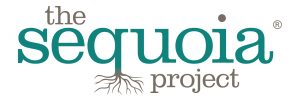Concerns about the credibility and ethics of electronic healthcare records (EHR) systems undermine their use in the healthcare industry. Unfortunately, some recent cases have shown the damage such ethical violations cause both patients and healthcare companies.
Ethical lapses in the use of EHRs damage patients by, in some cases, not properly securing their private healthcare records or by misleading doctors into making ill-informed diagnoses. For nurses, it can mean a tarnish on a profession rated every year as one of the most ethical and trustworthy in the country.
EHR systems improve the quality of healthcare, making operations more cost-effective and efficient. However, people increasingly see a need for healthcare organizations and those who work in healthcare IT to adopt ethical standards for the management of EHRs.
Examples of Ethical Lapses in EHRs
Unfortunately, recent history provides plenty of examples of misuse of EHR systems. They involve both deliberate and accidental misuse of patient information.
Influencing Opioid Prescriptions
Practice Fusion recently admitted to taking bribes from an unnamed pharmaceutical company to create an EHR system that influenced doctors to prescribe opioids between 2016 and 2019. The company paid $145 million in fines, according to Med City News.
Downloading Patient Data
An employee at Howard University Hospital in Washington, D.C., used her access to the EHR system to get medical data and contact information – including home addresses and Medicare numbers – from patients over a 17-month period. She intended to sell the information, according to research published in Perspectives in Clinical Research.
Contractors with Access to Personal Data
That same research reported that a contractor working with Howard University Hospital downloaded the personal information of 34,000 patients onto a private laptop. Thieves then stole the laptop from the contractor’s car. While the information was password protected, it was not encrypted, meaning the thieves were just one lucky guess on the password away from having access to the records.
Potential Bias
Another issue in some systems is potential bias against patients based on race, socioeconomic status and health conditions. For example, healthcare professionals described such issues becoming apparent in an automated system that calculated the odds a patient would not show for an appointment (a frequent issue in healthcare). They explained that the system judged people based on personal issues that could have resulted in more poor people wrongfully getting flagged in the system.
Implications for Nursing
In 2018, a Gallup poll found that the public sees nurses as far more honest and ethical than other professions. Of those surveyed, 84% named nurses as the most ethical and honest professionals, with doctors a distant second at 67% (members of Congress finished at the bottom at 8%). The poll has ranked nurses as No. 1 in this area for 17 consecutive years.
That said, technology has made ethics an issue in nursing. For example, nurses often collaborate through social media with other nurses, which can potentially lead to accidentally sharing information that identifies patients.
The American Nurses Association has released a list of social media principles for nurses that includes warnings about posting patient information and staying aware that patients, colleagues and employers may view any social media post a nurse makes.
A study on nurses and ethical issues with EHR concluded that organizations should focus on training and guidance for nurses in the use of technology. The report noted that “informatics specialty nurses and advanced practice nurses can serve as leaders” in providing continuing education for nurses on the use of EHR systems, including ethical issues.
Challenges in the Future – AI Focus
Legal and ethical issues in health informatics and other healthcare areas will only grow in the future. Companies invested billions of dollars in AI startup companies in 2019, according to Med City, with many of them focused on healthcare. What’s more, medical knowledge doubles about every 73 days as billions of data points pile up.
While the data can provide insight into better diagnostics and lessen the burden of administrative tasks, most healthcare organizations do not make full use of data because of a lack of training for clinicians. Part of this training also should include awareness of ethical issues with EHR systems.




